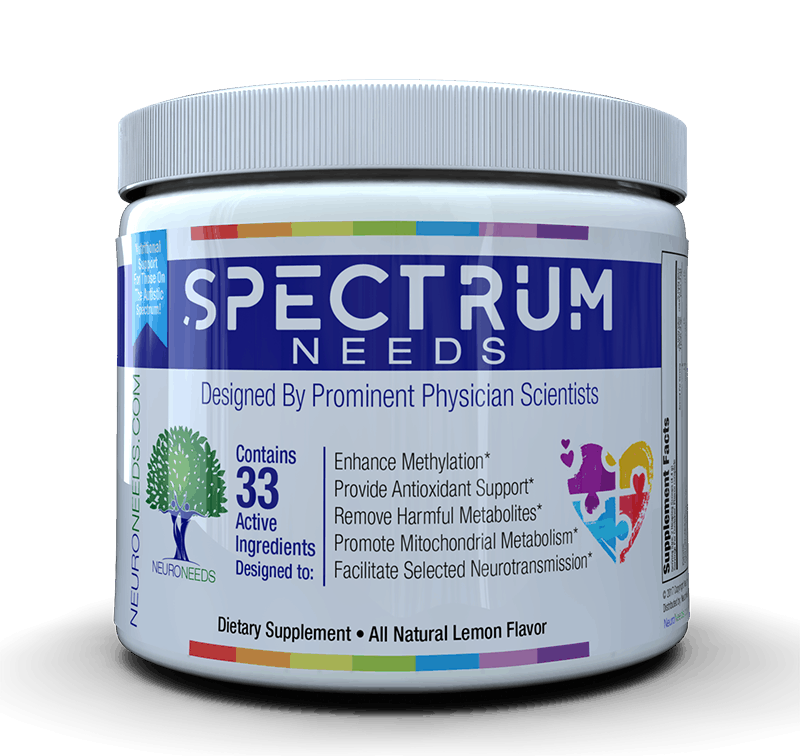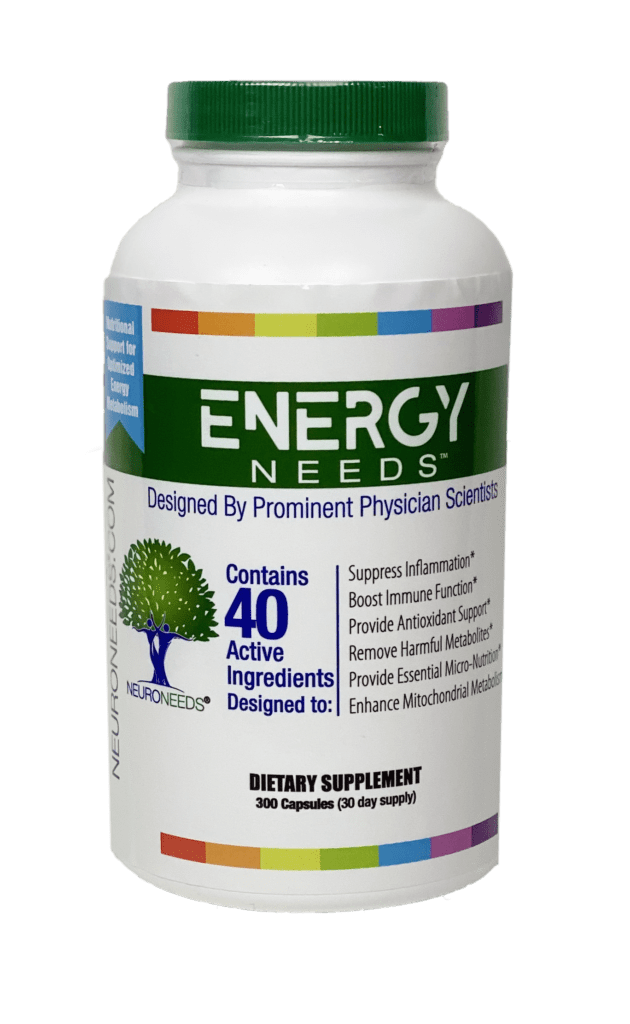Richard G. Boles, M.D.
November 19, 2020
The Common Link of Energy Metabolism in Health
In my 30 years of practicing medicine, first as a general pediatrician and later as a geneticist, I have seen large number of patients who see many different care providers for longstanding (chronic), and life-altering, symptoms. Oftentimes these symptoms include fatigue, pain, and/or nausea, but there are many other examples. Patients and their families continue to seek additional specialists and diagnostic tests in the hope that someone can identify the condition, and thus be able to alleviate suffering. Chronic disease is complex, and has many different causes, but one factor that is common to many chronic conditions is the presence of defective energy metabolism, also known as mitochondrial dysfunction.
Consider the following list of chronic medical conditions, none of which are rare:
• ADD/ADHD
• Anxiety disorder
• Autism spectrum disorders
• Chronic fatigue syndrome
• Common variable immunodeficiency (CVID)
• CRPS and other chronic pain disorders
• Cyclic vomiting syndrome
• Depression
• Diabetes type 2
• Dysautonomia
• Epilepsy
• Fibromyalgia
• Hypertension
• Irritable bowel syndrome
• Migraine
• POTS
All of the above-listed conditions are complex, with multiple causes across the population within each individual patient. However, all of these conditions are also related to mitochondrial dysfunction.

Mitochondria are present in almost all types of cells. Mitochondria are commonly known as the “powerhouse of the cell”, and they produce the vast majority of energy that cells use. Mitochondria serve many other purposes, but their main function is energy production. As cells of all kinds need energy for most of the things that they do, a deficit in energy metabolism, termed “mitochondrial dysfunction” can cause a wide variety of symptoms and conditions. This is why mitochondrial dysfunction has been found in so many different conditions, including all of those listed above.
While all cells need energy to do what they do, some cells require more energy than others, and thus mitochondrial dysfunction is more likely to affect these cells. The nervous system is electrical, and thus brain and other nerve cells are highly likely to be dysfunctional when energy is insufficient. Other cells with high-energy needs include muscle, endocrine glands, and immune cells. Thus, the symptoms and conditions associated with mitochondrial dysfunction generally involve these cell types, and that is why there is a link to the above-listed conditions, as well as many others. This does not mean that everyone with these conditions has a mitochondrial disease, although some do, and I have seen each of these conditions multiple times in my patients with proven mitochondrial disease. However, a substantial portion of people with any of these conditions has mitochondrial dysfunction as one factor leading to disease. Mitochondrial dysfunction is not the only cause of these conditions, but it is an important cause, because it is common and treatable.
While many people have just one of the disorders in the above list, many other people have two or more of these, or related, conditions, often several at once. In my experience, most of my patients with more than one condition in the above list have some degree of mitochondrial dysfunction based upon testing of their genetics, enzyme activity, and/or ultrastructure (electron microscope).
Nutritional Therapy of Mitochondrial Dysfunction
For 20 years as a biochemical geneticist at Children’s Hospital Los Angeles, I treated many children and young adults with metabolic (biochemical) and mitochondrial (energy deficiency) disorders. I am a recognized expert in Mitochondrial Medicine with multiple medical and scientific papers published as well as numerous lectures given in the field around the USA and the world. Most of the treatment options for mitochondrial and metabolic disorders are dietary/nutritional in nature. Because of the common link to energy metabolism, I developed a personal focus on both the functional (e.g. chronic pain, fatigue, or nausea) and the neurodevelopmental disorders (e.g. autism, ADHD, epilepsy), including many of the conditions in the above list. Standard drug therapies are oftentimes inadequate for these conditions, and since biochemical abnormalities are frequently present, I learned how to use the nutritional tools of biochemical genetics to help my patients. Over the years, including in my current private practice, I have witnessed the power that nutritional-based therapies can have for children with a wide range of functional and neurodevelopmental conditions. For more on my bio, see this link.
For 30 years, my clinical experience has informed me that nutritional therapy of mitochondrial dysfunction can make a powerful difference in people with functional and neurodevelopmental disorders, especially those with two or more of the conditions.
There are several other physicians in communities across the nation, who like myself, have witnessed that a comprehensive approach to nutrition is often associated with improvement for people with many different disease conditions. Like energy metabolism/production, nutrition is a basic aspect of biology that is important in nearly all aspects of health and disease. Sometimes, physicians focused on good nutrition in their patients label themselves as “integrative”, “functional medicine”, “biomed”, or “naturopaths”. In my opinion, all health care providers should focus on nutrition in all of their patients, not as the sole or an “alternative” treatment, but as basic “complementary” treatment, in addition to standard medical practice. Regardless on the label we go by, many of us “proactive” providers have had the consistent observation that nutritional therapies can lead to substantial improvement in many patients, and especially in those with functional and neurodevelopmental conditions. Thus, nutritional management is part of our core therapeutic recommendations for our patients with these disorders.
Diet (foods and drinks) is a critical part of nutrition. Yet even for people on excellent diets, dietary supplements are also generally recommended by proactive care providers. The reason is that several key nutrients demonstrate health benefits at levels far higher than anyone could reach by diet alone. There are multiple nutrients that are important for health, including many that are known as vitamins, minerals, cofactors, and antioxidants. Some of these nutrients the human body cannot make, and must obtained from outside. Other nutrients we can make, yet in insufficient quantities for optimal health. Many of these nutrients in both categories have important functions in the mitochondria.
The Mitochondrial Cocktail Explained
The “mitochondrial cocktail” refers to dietary supplementation with specific nutrients that have important roles in energy metabolism, generally at higher dosing than that achievable by diet. There are many such nutrients, and the components recommended by different physicians often differ. Some of the key components of the mitochondrial cocktail are nutrients well known to most people, such as riboflavin (vitamin B2), vitamin C, and magnesium. Others key components are lesser-known, including coenzyme Q10, carnitine, and alpha-lipoic acid. Mitochondrial cocktail is commonly used in the treatment of a wide-range of disorders associated with mitochondrial dysfunction, including the various functional and neurodevelopmental conditions.
As multiple nutrients are necessary for optimal mitochondrial function, many patients take 10 or more different supplement products as their mitochondrial cocktail, sometimes as many as 20 or 30 products in a single individual. Generally, these products are provided by several different supplement companies. This has several disadvantages including:
• Logistics: Getting anyone to take 10-30 different products is not easy and is time consuming. It can be especially daunting to give this to a child, or to someone with autism of any age.
• Costs: The price for the individual products varies widely, but a typical mitochondrial cocktail “a la carte” generally costs about $200 to $500 per month.
• Tolerability: Combined, the volume of the supplements, mostly filler, is a lot for a person’s stomach and intestines to handle, and frequently leads to nausea and/or other GI symptoms.
COMBINATION MITO COCKTAIL PRODUCTS: SPECTRUMNEEDS® AND ENERGYNEEDS®
SpectrumNeeds®
SpectrumNeeds® was created to be a baseline comprehensive nutritional supplement for patients with autism and other neurodevelopmental disorders. In essence, SpectrumNeeds® is designed to offer optimized general nutrition combined with a high-powered mitochondrial cocktail. In the nearly three years since SpectrumNeeds® was introduced, the results have exceeded my expectations; and anyone who knows me realizes that I am an optimist with high expectations! In the experience of myself and many other physicians and families, SpectrumNeeds® has:
- Greatly improved the ease of getting people onto combination nutritional therapy.
- Improved patient outcomes in many different ways, each unique to the individual.
- Common improvements are in “core” autism issues, such as tantrums/behavior, focus, and speech.
- Common improvements are in co-morbid “functional” issues, such as pain, fatigue, nausea/vomiting, and bowel movements.
- Saved families money versus taking the components separately.
- Reduced the likelihood of GI issues due to reduced filler/volume
- Overall, side effects are uncommon, mild, and fully reversible upon discontinuation.

However, the success and limitations of SpectrumNeeds® informed me that alternative product is required:
- Some adults and adolescents, as well as some children, prefer tablets/capsules to a powdered product. Also, while SpectrumNeeds® comes in lemon and berry flavors, can be mixed in any liquid, and most people like the taste, not everyone enjoys the taste.
- A small minority of people is limited in the amount of SpectrumNeeds® that is tolerated due to a hyperactive-like sensation and/or behavior, likely related to high dosing of activated/methylated B vitamins.
- SpectrumNeeds® is a great source of mitochondrial cocktail for each the above list of conditions, including neurodevelopmental and functional conditions. In fact, most of my own patients taking this product do not have a neurodevelopmental condition. In addition to neurodevelopmental disorders, I generally recommend SpectrumNeeds® in my patients with other conditions related to mitochondrial dysfunction, in particular functional disorders with pain, fatigue, nausea, depression, anxiety, and./or dysautonomia. However, many “neurotypical” (mentally unaffected) people hesitate to take a product marketed for neurodevelopmental condition such as autism.
Out of these considerations, EnergyNeeds® was created.
EnergyNeeds®
Like SpectrumNeeds®, EnergyNeeds® is designed to be a safe nutritional supplement for anyone regardless of the underlying genetics, signs or symptoms, severity of disease, age, and/or general health, and offers optimized general cellular nutrition combined with a high-powered mitochondrial cocktail.
EnergyNeeds® formula, compared to SpectrumNeeds®:
- Higher doses of several key ingredients, such as carnitine, vitamin D, and vitamin E, aimed at a higher-level of mitochondrial support.
- Additional antioxidants for even more-robust mitochondrial support, including vitamin A/beta-carotene and vitamin K.
- The flavinoids quercetin and rutin for better support of the immune system.
- Additional nutrients, including glycine, taurine, and carnosine to assist in metabolism and detoxification.
- More product, so that each unit contains a one month supply for an adult, instead of a one month supply for a child.
- Much lower amounts of activated/methylated vitamins B6, B9 (folate) and B12. Of course, if desired, the higher dosages can be supplemented additionally.
- Packaged in vegan capsules, versus SpectrumNeeds® that is a powder (lemon or berry flavor) that can be mixed with any beverage.

EnergyNeeds® is designed to:
- Be a baseline product meeting the core nutritional needs of most such people.
- Provide very-high dosing of key nutrients (e.g. vitamin D, vitamin B12, zinc, beta-carotene) to promote optimized health and immunity.
- Function as a high-level mitochondrial cocktail, providing additional nutritional support to boost mitochondrial function (increase energy production), and to de-toxify abnormally-metabolizing mitochondria.
- Provide all of this in a single product* and thereby reducing the costs, time, hassles, and side effects of taking multiple different supplement products.
- Be convenient to take, with all 40 active ingredients present in each capsule.
Oil and water do not mix – Supplement ubiquinol separately
EnergyNeeds® consists of capsules filled with 40 active all-natural ingredients in a water-soluble powder form. Thus, it is physically very difficult to add oil-soluble nutrients in a manner that is highly useable by the body. In particular, I am referring to ubiquinol, a highly bioavailable form of coenzyme Q10 (coQ10). CoQ10 as ubiquinol is so important that any dietary supplement designed to boost mitochondrial function is likely to fail without it. Thus, I strongly recommend taking ubiquinol as a separate product with either EnergyNeeds® or SpectrumNeeds®. NeuroNeeds® sells a very-highly bioavailable form of ubiquinol in limonene oil (derived from citrus peel) under the name QNeeds®. Learn more about ubiquinol and QNeeds® here.
Conclusions
- Nutrition is a vital aspect of maintaining health as well as a vital aspect in the return to health in multiple disease states.
- One particularly vital aspect of nutrition in disease management regards mitochondrial function:
- Mitochondrial dysfunction is very common in many disease states, especially with chronic symptoms such as pain, fatigue, nausea, dizziness, and anxiety.
- The primary treatment of mitochondrial dysfunction is nutritional.
- Multiple nutrients are important to supplement for optimized mitochondrial function:
- EnergyNeeds® (capsules) or SpectrumNeeds® (powder) are excellent and convenient products in order to provide the multiple mitochondrial-targeted nutrients.
- Add ubiquinol®, perhaps as QNeeds®, in order to add the one critical nutrient that chemistry dictates must be taken separately.
For more information about the Mitochondrial Cocktail, SpectrumNeeds®, and/or EnergyNeeds®, please visit www.neuroneeds.com or email contact@neuroneeds.com.
About Richard G. Boles, M.D.
Dr. Richard G. Boles completed medical school at UCLA, a pediatric residency at Harbor-UCLA, and a genetics fellowship at Yale. For over two decades, Dr. Boles’ clinical and research focus has been on changes in genes involved in energy metabolism and additional pathways, and their effects on the development of common functional disorders. Examples include autism, pain syndromes, chronic fatigue, cyclic vomiting, intestinal dysmotility/failure, and depression. He has over 80 published papers. For 20 years, Dr. Boles was a faculty member at the Keck School of Medicine at USC and a practicing medical geneticist at Children’s Hospital Los Angeles. He was a Medical Director of the genetic testing companies, Lineagen and Courtagen. Dr. Boles became involved in genetic testing in order to facilitate the translation of the vast amounts of acquired genetic knowledge into applications that improve routine medical care. Dr. Boles has an active telemedicine practice. Finally, Dr. Boles is the primary creator of SpectrumNeeds® in his position as a founder and the Chief Medical & Scientific Officer of NeuroNeeds®.
Disclosure: Dr. Boles is the Chief Medical & Scientific Officer for NeuroNeeds LLC, the start-up company that makes SpectrumNeeds®, QNeeds®, and CalmNeeds®. You are under no obligation to purchase this or any products, whether recommended by Dr. Boles or another health care provider. As always, it is recommended that you contact your physician regarding these products and all other changes to disease management.
The Content within this article and NeuroNews Blog is not intended to be a substitute for professional medical advice, diagnosis, or treatment. Always seek the advice of your physician or other qualified health provider with any questions you may have regarding a medical condition. Never disregard professional medical advice or delay in seeking it because of something you have read on this Blog.








